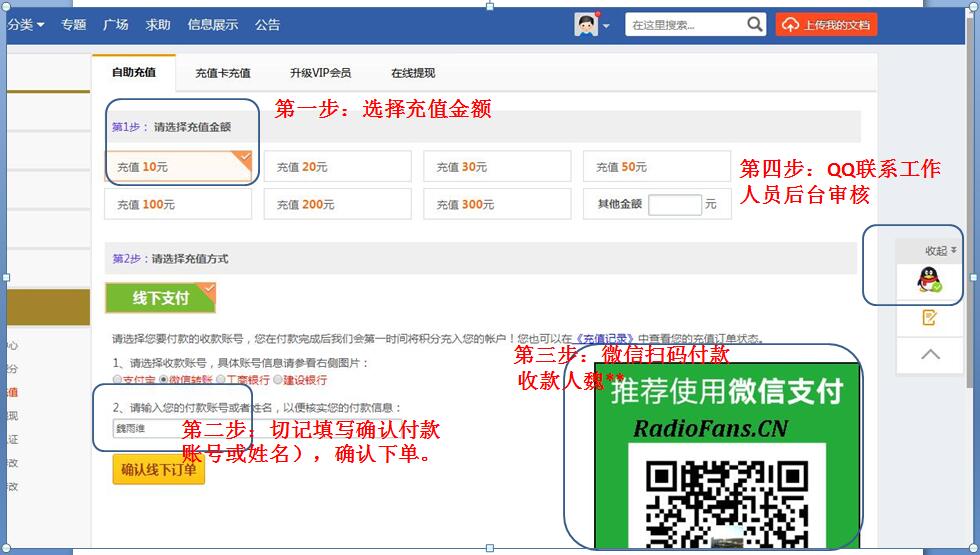 Marantz-SR8001-rs232c-cs 维修电路原理图.pdf
Marantz-SR8001-rs232c-cs 维修电路原理图.pdf
《Marantz-SR8001-rs232c-cs 维修电路原理图.pdf》由会员分享,可在线阅读,更多相关《Marantz-SR8001-rs232c-cs 维修电路原理图.pdf(22页珍藏版)》请在收音机爱好者资料库上搜索。
1、 RS-232C Control Specification : Rev 00 Marantz America, Inc. 2006 All rights are reserved. Reproduction in whole or in part is prohibited without the written consent of copyright. All specifications might be subject to change without notice. SR8001 RS-232C Control Specification Category : A/V Recei
2、ver Document Version : 1.0 Author(s) : Marantz America, Inc. Date : 2006/08/30 Number of Page : 22 RadioFans.CN 收音机爱 好者资料库SR8001 RS-232C Control Specification Page: 2 / 22 Document Version 1.0 Company Restricted Table of Contents 1. Introduction.3 1-1. Purpose.3 1-2. Scope.3 1-3. Abbreviations .3 1-
3、4. References.3 2. Global Description.3 2-1. Overview.3 2-2. Block Diagram.3 2-3. Interface connection specification of the product.3 2-4. Assumptions and Dependencies.3 3. Detailed Description.4 3-1. Connection format.4 3-1-1. Physical connection.4 3-1-1-1. Data transmission sequence from Host to S
4、lave.4 3-1-1-2. Data transmission sequence from Slave to Host.4 3-2. Transmission data format.5 3-2-1. Transmission data format from Host to Slave.5 3-2-1-1. Form1: Command.5 3-2-1-2. Form2: Status request.5 3-2-2. Transmission data format from Slave to Host.5 3-2-2-1. Form1: ACK/NAK.5 3-2-2-2. Form
5、2: Status answer and Auto status feedback.5 3-3. The transaction sequences and the regulations.6 3-3-1. The transaction sequences.6 3-3-2. The transaction regulations.6 3-3-3. Specification of Auto status feedback.6 3-3-4. Example of the transactions.6 3-3-5. Examples of the handshaking flowchart.7
6、3-3-5-1. Example of successful handshaking.7 3-3-5-2. Examples of handshaking error.7 4. Recommendations of Command, Status and Layer definition.8 5. Definitions of Command, Status and Layer.9 5-1. Normal Command List.9 5-1-1. Main function contents.9 5-1-2. Display and Menu contents.10 5-1-3. Surro
7、und contents.11 5-1-4. Tuner contents.12 5-1-5. XM Contents.12 5-1-6. Multi Room contents.13 5-2. Specific Commands.16 5-3. Status request and Status answer list.17 5-3-1. Normal Status request and Status (answer and feedback) list.17 5-3-2. Layer of the statuses.21 6. Revision history.22 RadioFans.
8、CN 收音机爱 好者资料库SR8001 RS-232C Control Specification Page: 3 / 22 Document Version 1.0 Company Restricted 1. Introduction 1-1. Purpose This document was written as a reference specification of products that are controled by the host controller. 1-2. Scope This document would be using by software or har
9、dware engineers for production of the product. 1-3. Abbreviations Abbreviation Description 1-4. References - Hardware Software Interface Specification ver. 1.02 / author: N.Sakamoto - 2. Global Description 2-1. Overview A Host controller can control or watch out the product as a Slave very easily vi
10、a the communication cable. 2-2. Block Diagram * The product connector is using D-SUB 9pin male. * RS232C cable must use D-SUB 9pin female to connect the products. 2-3. Interface connection specification of the product uP Interface Signal name Connection device D-Sub Pin Connecter - N.C. - 1 TxD (out
11、put) 2 UART RxD (input) RS232C Level shift driver 3 - N.C. - 4 - GND GND 5 - N.C. - 6 - N.C. - 7 - N.C. - 8 - N.C. - 9 RS232C D-SUB (9pin,Male) 2-4. Assumptions and Dependencies HOST (Controller) SLAVE (The product) RS232C cable (straight) Connector D-SUB (9pin, male) SR8001 RS-232C Control Specific
12、ation Page: 4 / 22 Document Version 1.0 Company Restricted 3. Detailed Description The interface specification between the product and a Host controller is described below. 3-1. Connection format 3-1-1. Physical connection Host (Controller) Slave (the product) (Serial setting ) Baud Rate : 9600bps D
13、ata Bits : 8bit Parity : None Stop bit : 1bit Handshaking : None 3-1-1-1. Data transmission sequence from Host to Slave Host (Controller) Slave (The product) TxD RxD RxD TxD 1. Host starts a data transmission from TxD. 2. Host performs the data transmission of the number of required bytes, and ends
14、a transmission. 3-1-1-2. Data transmission sequence from Slave to Host Host (Controller) Slave (The product) TxD RxD RxD TxD 1. Slave starts a data transmission from TxD. 2. Slave performs the data transmission of the number of required bytes, and ends a transmission. TxD RxD GND RxD TxD GND SR8001
15、RS-232C Control Specification Page: 5 / 22 Document Version 1.0 Company Restricted 3-2. Transmission data format 3-2-1. Transmission data format from Host to Slave There are two kinds of transmission data form from Host shown below. 3-2-1-1. Form1: Command Command is a data that requests some status
16、 change. Start character : COMMAND : see “Command list” End character (CR) : 0Dh 3-2-1-2. Form2: Status request Status request is a data that requests a answer of some status. Start character : Request status : see “Status request list” Request character : ? End character (CR) : 0Dh 3-2-2. Transmiss
17、ion data format from Slave to Host There are two kinds of transmission data form from Slave shown below. 3-2-2-1. Form1: ACK/NAK ACK is a reply data from Slave when Slave got an acceptable command data from Host. (ACK is sent to Host when Slave has no related status by the Command.) Start character
18、: , ACK : 06h, End character (CR) : 0Dh NAK is a reply data from Slave when Slave got an incorrect Command data, Status request data or some other data from Host. Start character : , NAK : 15h, End character (CR) : 0Dh 3-2-2-2. Form2: Status answer and Auto status feedback Status answers are reply d
19、ata when Slave got an acceptable Request status or Command data from Host. Auto status feedbacks are send to Host data when a Slaves status is changed. Start character : Answer character : see “Status list” End character (CR) : 0Dh AACK 06h CR 0Dh start ANAK 15h CR 0Dh start start command “xxx:”+”.”
20、 end 0Dh start request status “xxx:?”+”.” end 0Dh start status “xxx:”+”.” end 0Dh SR8001 RS-232C Control Specification Page: 6 / 22 Document Version 1.0 Company Restricted 3-3. The transaction sequences and the regulations 3-3-1. The transaction sequences The transactions have three kinds of sequenc
21、e. *A transaction is a Command from Host then Slave will be an answer by Status answer, ACK or NAK. *A transaction is a Status request from Host then Slave will be an answer by Status answer or NAK. *A transaction is Auto status feedback from Slave when a Slaves status changed. (If the auto status f
22、eedback is enabled.) 3-3-2. The transaction regulations The transactions have some kinds of regulation. * An answer (ACK, NAK or Status answer) transmittion by Slave has to finish within 500ms when got a Command or a Status request from Host. * Host must not transmit an another Command or Status req
23、uest until it receives a answer by a previous Command or Status request or it passes a term of waitinng time from a finishing of previous transmission of a Command or a Status request . * Slave has to finish a transaction under 500ms when it sends Auto status feedback data. 3-3-3. Specification of A
24、uto status feedback There are some specific regulations about Auto status feedback. * The product status has segmented into four layers of 1, 2, 3 and 4. * The status of layer 1 are assigned most kindly status to Host. (The statuses of layer 2 are assigned kindly status, the statuses of layer 3 are
25、not so need status to Host and the statuses of layer 4 are probably no wished statuses.) * Each layer status can control transmit enable or disable by Host command. (The product default would be all disables.) * Slave sends auto status feedback by itself when the status is changed and if the status
- 配套讲稿:
如PPT文件的首页显示word图标,表示该PPT已包含配套word讲稿。双击word图标可打开word文档。
- 特殊限制:
部分文档作品中含有的国旗、国徽等图片,仅作为作品整体效果示例展示,禁止商用。设计者仅对作品中独创性部分享有著作权。
- 关 键 词:
- Marantz-SR8001-rs232c-cs 维修电路原理图 Marantz SR8001 rs232c cs 维修 电路 原理图
 收音机爱好者资料库所有资源均是用户自行上传分享,仅供网友学习交流,未经上传用户书面授权,请勿作他用。
收音机爱好者资料库所有资源均是用户自行上传分享,仅供网友学习交流,未经上传用户书面授权,请勿作他用。



 Marshall-9100-62-02-Schematic电路原理图.pdf
Marshall-9100-62-02-Schematic电路原理图.pdf


